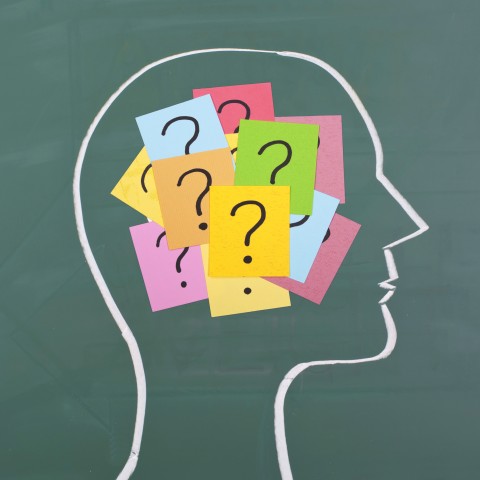Conjunctions: Expanding ideas, stringing together sentences, and allowing comparisons since the beginning of the English language.
Studying English conjunctions and linking words is an important aspect of learning the English language. Without them, your speech and writing would be flat. Boring. Pretty much incohesive.
In this English conjunctions for beginners article, we’ll teach you everything you need to know about conjunctions in English grammar:
- The different kinds of conjunctions in English
- English grammar conjunctions rules
- The most helpful English conjunctions words
- English conjunctions usage
- English conjunctions examples for reference
Trust us, taking the time to learn English conjunctions will make your speech and writing more eloquent.
Are you ready to learn English connecting words? Let’s get started!
Table of Contents
1. English Conjunctions Explained: Definition and Types
Before we move onto our English conjunctions list, here are the basics of English conjunctions grammar rules and English conjunctions classification.
A conjunction is a word that essentially connects two or more thoughts together in some way. They allow for comparisons, complex sentences, and even clarification.
Here are the three main types of English conjunctions and their meanings:
- English Correlative Conjunctions: When you correlate, you compare two things or show how they’re related. Thus, a correlative conjunction is actually two conjunctive words (“either/or”; “neither/nor”; etc.) that help to make this comparison.
- English Coordinating Conjunctions: Think of a coordinator for a large project at work; this person will make sure that all the pieces fall together like they should, in a way that makes sense. They’ll also make sure that everyone is doing their job properly. That’s what coordinating conjunctions (“and”; “but”; etc.) do; they help to piece a longer sentence together in a way that makes sense.
In particular, coordinating conjunctions link two sentence particles together that are the same grammatically (think of a mirror reflection in terms of grammar, with a conjunction in between them). A lot of people use the term FANBOYS to remember the seven most common ones (“for”; “and”; “nor”; “but”; “or”; “yet”; “so”).
- English Subordinating Conjunctions: In English grammar, subordinating conjunctions (“because”; “while”; etc.), which link dependent and independent clauses, typically help to make a relationship between cause-and-effect or a similar relationship in a sentence.
The majority of English conjunctions fall into one of these three categories, though for the purpose of this article, we’ve included five, broader categories. This is to give you a better idea of which English conjunction words are used for which purposes.
Unfortunately, learning conjunctions isn’t a cookie-cutter experience. Conjunctions aren’t cookie-cutter. As you read through this article, you’ll find that many conjunctions in English can be used for various purposes while connecting thoughts. They don’t always fall neatly into categories, and you may find one conjunction in more than one category, serving a different purpose in each. In this article, we’ve marked those with an asterisk (*).
Truly, conjunctions are one of the most difficult concepts in English grammar to grasp (even for native speakers!). Slip-ups will happen when putting these conjunction words to use, but even just a basic understanding of them will improve your English fluency tremendously. The more you use them, the more natural it becomes.
With that part of our English conjunctions lesson out of the way, let’s get started with our English conjunctions list! By now, it should be clear that when it comes to expanding your English vocabulary, conjunctions are not to be missed!
2. Conjunction Examples
As mentioned above, the English conjunctions in this article are divided into five broad conjunction categories, instead of the English types of conjunctions we mentioned above. These categories are:
- Conjunctions to correlate similar thoughts
- Conjunctions to express condition
- Conjunctions to express cause
- Conjunctions to express opposition
- Conjunctions to express purpose
On our conjunctions list, you’ll also find a few conjunctive adverbs. Their purpose is very similar to that of some English conjunctions, but they’re not technically considered conjunctions. They work a bit differently than English conjunctions phrases.
1- Conjunctions to Correlate Similar Thoughts
To start our English list of conjunctions, here are some English conjunctions and examples that are used to correlate similar thoughts.
1. And
Example Sentence:
Tom likes to play softball and Brandon likes to listen to music.
Explanation:
The conjunction “and” in this sentence allows the writer to link two clauses. Without this conjunction, the writer would have to express this with two sentences (or one sentence with a semicolon):
Tom likes to play softball. Brandon likes to listen to music.
Tom likes to play softball; Brandon likes to listen to music.
While there’s technically nothing wrong with expressing the idea this way, it’s generally not as pleasant to read as the single sentence using the conjunction.
2. Also
Example Sentence:
“I write music, and I’m also working on a novel,” said Dave.
Explanation:
In this sentence, the word “also” correlates the two things that Dave is doing: writing music and working on a novel. This way, Dave doesn’t have to use two sentences:
“I write music. I’m writing a book too.”
Again, while there’s nothing technically wrong with this way of expressing the idea, it sounds a lot more cohesive when written as one sentence with a conjunction (especially when speaking).
3. Or
Example Sentence:
“Oranges or tangerines?” asked the shopkeeper.
Explanation:
Here, the conjunction “or” is used to correlate between two similar but different items: tangerines and oranges. The word “or” is most often used in question form, though it can also be used in a declaratory or other sentence. Also keep in mind that it can be used to link together longer sentences as well, where a short sentence won’t do the trick:
“Do you want oranges or tangerines?” asked the shopkeeper.
“Do you want oranges, or do you want tangerines?” asked the shopkeeper.
4. Nor
Example Sentence:
She wouldn’t give up on her dream, nor would she let others get in her way.
Explanation:
“Nor” is one of the trickiest conjunctions, and it’s easy to slip up when learning how to use it. It sounds a lot like the conjunction “or,” and it serves a similar function. But it’s only used in a negative sense.
The above sentence talks about what the subject won’t allow to happen, and so the word “nor” is used.
A tip to remember this is to think of how similar “nor” is to the word “no,” which is a negative word.
5. For
Example Sentence:
“A tooth for a tooth, and an eye for an eye.”
Explanation:
In the above quote, the conjunction “for” is used to correlate similar objects. On the surface, it shows that a tooth is worth another tooth, and an eye is worth another eye; thus, the one eye can be exchanged for another, etc. (Though it’s really a quote about getting even!)
6. As well as
Example Sentence:
Her granddaughter loves kittens, as well as puppies.
Explanation:
This is another tricky conjunction. Many people (native English speakers included!) incorrectly use this conjunction interchangeably with the words “and” and “also.” But this phrase is special in that it helps to rank the importance of the compared ideas.
In the above sentence, kittens are mentioned before puppies; the phrase “as well as” separating kittens from puppies shows that the granddaughter loves kittens just a little more than she loves puppies.
—
Note that the next few conjunctions to correlate similar thoughts are actual correlative conjunctions, as we talked about earlier in this article. They are two conjunctive words, placed apart from each other in a sentence, used to link similar ideas.
7. Both ___ and ___
Example Sentence:
Both diet and exercise contribute to a person’s health.
Explanation:
In this conjunction (and the next few), a pair of conjunctions is used, as opposed to only one. This conjunctive phrase is helpful when correlating two ideas that are directly related to each other. The word “both” indicates that each idea is equally emphasized, while the word “and” is used exactly as the single conjunctive word “and” is.
In the above sentence, the writer is conveying the idea that diet and exercise are equal contributors to a person’s health.
8. Neither ___ nor ___
Example Sentence:
Samantha likes neither math nor science in school.
Explanation:
This conjunctive phrase is used exactly the same way as the above phrase, except it’s used for negative correlative sentences. In the sentence above, this phrase is used because it’s talking about two things that Samantha doesn’t like—not two things she does like.
9. Whether ___ or ___
Example Sentence:
Whether Jordan or Randy asked her to prom, she would be happy.
Explanation:
This correlative phrase is used to show that two ideas are similar, and expresses the sense that neither idea is more significant than the other in context. In the above sentence, the girl doesn’t really care which of the two guys asks her to prom; she’ll be happy either way.
10. Either ___ or ___
Example Sentence:
“We can find those shoes at either Ross or Target,” Sam said.
Explanation:
This correlative phrase is very similar to the previous one, though it’s used differently in terms of grammar. This is because “whether” is usually used when considering an idea or concept, and “either” is usually used when considering two concrete nouns (like the two stores in our example sentence).
“Whether” has more to do with circumstance, while “either” has more to do with actual, palpable things or events.
11. Not only ___ but also ___
Example Sentence:
Carlile wanted not only money, but also power.
Explanation:
You may be wondering why we can’t just say: “Carlile wanted money and power.”
Well, we can. But using the conjunctive phrase “not only money, but also power,” is a more emotionally striking way to write this sentence. It shows that money isn’t enough for Carlile; he needs to have power, too.
Simply using the word “and” simply indicates that he wants both things. Not a big deal, since lots of people would like to have money and power. But knowing that money isn’t enough for him, and that he needs power as well, adds a layer to Carlile’s personality.
Essentially, “not only ___ but also ___” is a great conjunction to use if you want to put emphasis on the second thing that’s mentioned.
12. Not ___ but ___
Example Sentence:
Not the children, but the parents, were acting foolishly.
Explanation:
This one is a little bit tricky, but essentially it establishes the concept of one thing instead of another thing. In the example sentence, this correlative conjunction establishes that the parents were acting foolishly, instead of the children.
You can also rearrange the sentence this way, if it gives you a better idea of how the “not ___ but ___” phrase works:
The children were not acting foolishly, but the parents were.
2- Conjunctions to Express Condition
This list of conjunctions with examples express condition. Keep in mind that these conjunctions are pretty flexible when it comes to their placement in a sentence; you can find them both at the beginning of a sentence, and in the middle. You’ll see this more clearly in the English conjunctions sentences throughout the section.
1. If
Example Sentence:
Tony would only go to the party if Jaquelin was going too.
Explanation:
“If” may be the most common and frequently used conditional conjunction. Essentially, “if” stands for whatever the condition is. In this case, “if” represents Jaquelin going to the party.
In the above sentence, it’s made clear that Tony going to the party depends entirely on whether Jaquelin is going. If she goes, he will too.
2. When
Example Sentence:
When Cindy left the office, she felt a wave of relief.
Explanation:
The word “when” in this sentence indicates that Cindy didn’t feel relief until the moment she left the office.
3. While
Example Sentence:
“Quick! Run while they’re distracted!”
Explanation:
The word “while” in this sentence indicates that the only time this person should run is during the time that the others are distracted.
4. Once
Example Sentence:
Once Kyle clocks out of work, he’s going to go home and take a nap.
Explanation:
The word “once” in this sentence is used as a precursor to the condition. This shows us that Kyle will (try to) wait until he’s off work to succumb to sleep.
5. After
Example Sentence:
He felt such admiration for her after she saved his life.
Explanation:
The word “after” in this sentence is a conditional conjunction because it shows that the man didn’t feel admiration for the woman until she saved his life. Again, the word “after” links the end-result with the condition that led to it.
6. Before
Example Sentence:
They decided to buy snacks before the hockey game.
Explanation:
The word “before” in the above sentence links what they did with when they did it (the condition under which they bought the snacks).
7. During
Example Sentence:
It was during the game that trouble arose.
Explanation:
In this sentence, “during” indicates the condition under which the trouble started. (There trouble did not start before or after the game, but during it.)
8. As soon as
Example Sentence:
Violence broke out as soon as the puck hit the ice.
Explanation:
“As soon as” indicates either immediacy or urgency, depending on the context. In the above sentence, this phrase indicates that violence happened at the very moment the puck was dropped, showing a sense of immediacy.
9. Until
Example Sentence:
The crowd was excited until the fighting stopped.
Explanation:
“Until” is a conditional conjunction that means something went on, and then stopped once a condition was met. In this case, the crowd was excited up until the point when the fighting stopped. The word “until” links an event to the condition under which it ended.
10. As long as
Example Sentence:
He figured that as long as Lucia kept her promise, everything would be okay.
Explanation:
This conditional conjunction indicates continuance or assurance. In the above sentence, the man knows that everything will be okay only under the condition that Lucia keeps the promise she made, and continues to keep it. “As long as” indicates that once that condition is no longer true, neither is the thing that came about because of the condition (if Lucia doesn’t keep her promise, things won’t be okay).
11. As much as
Example Sentence:
Marnie felt bad about cheating, as much as she loved her new trophy.
Explanation:
“As much as” can have various uses, but in the sentence above, it’s a conjunction that’s showing that Marnie’s guilt about cheating equals (or outweighs) her love for the trophy she received by cheating. In this sentence, “as much as” also indicates a condition concerning her love for the trophy.
12. By the time
Example Sentence:
“By the time she gets here, they’ll have locked the gates already!” thought Penelope.
Explanation:
In this sentence, “by the time” is a conjunction that precedes the condition (“she gets here”). It indicates that the gates will be locked either before, or right at, the moment Penelope’s friend arrives.
13. Even if
Example Sentence:
Reynold decided he would stay with her, even if she wasn’t who she said she was.
Explanation:
“Even if” is an interesting conditional conjunction. It doesn’t really indicate one specific condition, but rather states that even if a prior condition (the woman being who she said she was) doesn’t happen, Reynold will still perform the action he would have if that prior condition was met.
(With EnglishClass101, you’ll surely master the English language, even if it’s difficult sometimes!)
14. Now that
Example Sentence:
Natalie could relax, now that the uncomfortable conversation was over.
Explanation:
“Now that” is a conditional conjunction that indicates something is past (or something has happened), which allows for the end-result to occur. In the above sentence, the condition is that the conversation is over; the end-result is that Natalie can relax; the conjunction “now that” links those two happenings in a cohesive way.
15. Provided that
Example Sentence:
Isabel decided she didn’t have a reason to worry, provided that Ella had come prepared.
Explanation:
“Provided that” indicates a condition similar to the way “as long as” does. As long as something happens, or is true, the end-result can be achieved. In this case, Isabel not worrying depends on whether or not Ella has come prepared. Technically, you could also say, “Isabel decided she didn’t have a reason to worry, as long as Ella had come prepared,” but this gives off a slightly different meaning.
When you use “provided that,” it almost indicates that the condition is a given, or is thought to be a given. In the example sentence, it almost sounds like Isabel believes that Ella has come prepared, and for that reason has no reason to worry. It takes away most of the chance element that “as long as” gives off.
16. Supposing
Example Sentence:
“Supposing the stadium is an hour away, I should leave in a few minutes,” thought Bo.
Explanation:
“Supposing” is very similar to “provided that.” However, “supposing” is a lot more like asking a question, or giving oneself a reference for what could possibly be true. In the above sentence, Bo uses the conjunction “supposing” to give himself a reference for when he should probably leave. However, he could think immediately after:
“But then again, supposing the traffic’s bad, I should leave right away.”
Bo is preparing himself for different scenarios, and trying to figure out which one is most likely, using the word “supposing.”
17. Unless
Example Sentence:
“There’s no way she’ll win the race, unless a miracle happens!” Jack said.
Explanation:
The condition conjunction “unless” is a more basic conjunction. It directly relates the condition to the outcome. In the above sentence, “unless” is a conjunction that links the condition (a miracle happening) and the outcome (the woman winning the race). She won’t win the race without a miracle.
18. Lest
Example Sentence:
He had to hurry, lest the evil henchmen recapture him.
Explanation:
“Lest” may be one of the more difficult conjunctions to remember and to grasp. It sounds a little bit like the word “unless,” but it actually has a different meaning and is used differently.
Essentially, “lest” means “so it won’t happen” or “or else it will happen.”
This may sound odd. But consider that the sentence could be written either of the following ways, and still be true/make sense in context of the original sentence:
He had to hurry, so that the evil henchmen wouldn’t recapture him.
He had to hurry, or else the evil henchmen would recapture him.
In the first version, the condition is that he hurries, and the outcome is that he’s not recaptured.
In the second version, the condition would be his not hurrying, and the outcome would be that he was captured.
Either way, the sentence as a whole indicates that he has to hurry in order to escape. (But keep in mind that the first interpretation “so that it won’t happen” is more common/proper overall.)
* 19. If ___ then ___
Example Sentence:
If Scott really had time-traveled, then Pip had lied to her.
Explanation:
This is an interesting conjunction, because it’s used to express condition, as well as to express cause (which is why it’s also included in the following section). This conjunction expresses that if one thing happens or is true, it will cause or mean another thing. Here, “if” precedes the condition (Scott time-traveling) and “then” precedes the effect (whether or not Pip lied to her). The latter depends entirely on whether the first condition is met.
3- Conjunctions to Express Cause
Here’s a list of the most common conjunctions to express cause, with example sentences and explanations.
1. So
Example Sentence:
The road was blocked, so Alicia took a detour and was late to work.
Explanation:
In this sentence, “so” links the cause of Alicia’s taking a detour—and consequently being late to work—with its cause (the road being blocked).
2. Because
Example Sentence:
Because of her fright that morning, Yuliza didn’t feel like eating.
Explanation:
In this sentence, “because” is a precursor to the cause of why Yuliza didn’t feel like eating. Her fright made her lose her appetite.
3. Therefore
Example Sentence:
“I didn’t stop to rest on my long journey, therefore I am tired,” the strange man said.
Explanation:
In this sentence, “therefore” connects the consequence (the strange man being tired) with the reason—or cause—behind it (he didn’t rest on his long journey).
* 4. If ___ then ___
Example Sentence:
If one more thing went wrong, then Russel would just go back to bed.
Explanation:
“If ___ then ___” statements are something you’ll encounter often in the English language. This conjunctive phrase essentially describes a cause and effect. In the example sentence, the cause (one more thing going wrong) is directly linked to the effect (Russel going back to bed). It also implies that if the cause doesn’t happen, neither will the effect.
* 5. Since
Example Sentence:
Since traffic was slow, Kira was late to work.
Explanation:
In this sentence, the conjunction “since” serves as a precursor to the cause. It implies that the reason Kira is late to work is directly related to the slow traffic.
6. Seeing as
Example Sentence:
Seeing as most of the stores in town were closed, they ventured out for supplies.
Explanation:
Here, “seeing as” serves as a precursor to the cause (like the conjunction in the example above). It implies that the reason they ventured out for supplies is because the stores in town were closed.
This conjunction may sound grammatically strange (many conjunctions do!). However, this one may be easier to remember if you imagine replacing the “as” with “that,” making the sentence sound more grammatically normal:
Seeing that most of the stores in town were closed, they ventured out for supplies.
The biggest difference between these two sentences is in the narration. The original sentence has a more distant narration (as though someone else were telling you about this group). The second sentence has a more up-close narration (it sounds more like you’re reading it from the group’s perspective).
7. Hence
Example Sentence:
Olive was always busy with work, and hence had little time for family.
Explanation:
“Hence” is another odd-sounding conjunction. It’s very similar to the word “so.” The above sentence has roughly the same meaning as:
Olive was always busy with work, and so she had little time for family.
8. Why
Example Sentence:
Her laundry didn’t have time to finish, and that’s why her shirt is still wet.
Explanation:
“Why” is one of the most common conjunctions for expressing cause. Essentially, “why” in this context means “the reason.” For example, the above sentence could also be written:
Her laundry didn’t have time to finish, and that’s the reason her shirt is still wet.
4- Conjunctions to Express Opposition
Here’s a list of common conjunctions to express opposition, with example sentences and explanations:
1. But
Example Sentence:
Tilly wanted to stay longer, but she had to be up early the next morning.
Explanation:
In this sentence, “but” links what Tilly wants with the reason she can’t have it.
2. But still
Example Sentence:
Wendy had meant well, but still felt bad about what happened.
Explanation:
In this sentence, “but still” indicates that despite Wendy’s intentions, she feels bad about where her intentions led.
3. Yet
Example Sentence:
He had so much potential, yet rarely showed it.
Explanation:
“Yet” can be tricky, as it seems to act a lot like the word “but.” However, it’s used much differently and has a slightly different meaning.
“But” usually has to do with wanting something, whereas “yet” has more to do with how something should be (or is expected to be).
In the above sentence, “yet” is used to indicate that this man’s potential should be shown (and it’s not, for whatever reason).
4. And yet
Example Sentence:
Lane had done so much for her, and yet she still didn’t love him.
Explanation:
The conjunctive phrase “and yet” is very similar to the above conjunction. Putting the word “and” in front of “yet” seems to indicate an element of patience or temperament.
For example, take this sentence, omitting the word “and”: Lane had done so much for her, yet she still didn’t love him.
This sentence seems to imply only that she doesn’t love him even though she should. But if you add the word “and” like in our example sentence, it adds a feeling of length and even of frustration.
5. However
Example Sentence:
“I do like ice cream,” she said, “however, I can’t eat it because I’m lactose-intolerant.”
Explanation:
In this sentence, “however” indicates a variable that results in the aforementioned thing being irrelevant. In this case, it doesn’t matter that the speaker likes ice cream; she can’t eat it, because she’s lactose-intolerant. The word “however” also indicates that the speaker is in opposition to eating ice cream; further, her ability to eat ice cream is opposed by her lactose-intolerance.
6. Though
Example Sentence:
The town was lovely, though Heather didn’t like how cold it was.
Explanation:
“Though” is a fairly mild conjunction. It indicates that even though one thing is true, another factor or idea keeps the first thing from being completely true or relevant. In this case, Heather likes the scenery in her new town, but because of the weather, her enjoyment is hindered.
7. Except (that)
Example Sentence:
Anne thought it was a good deal, except that she didn’t quite trust him.
Explanation:
“Except (that)” is a phrase that links to an exception. In the above sentence, Anne thinks that it’s a good deal—but one thing keeps her from completely believing it (she doesn’t trust the person making the deal with her). That’s where this English linking phrase comes in.
5- Conjunctions to Express Purpose
Here are some of the most common conjunctions to express purpose, with example sentences and explanations.
1. So that
Example Sentence:
He cleared the way, so that she could get through.
Explanation:
In this sentence, “so that” explains 1.) That the man had a reason for clearing the way, and 2.) What that reason was. This conjunctions connects those two pieces of information.
2. In order to
Example Sentence:
In order to learn English while having fun, he studied with EnglishClass101.
Explanation:
“In order to” is a conjunction that links the following explanations: 1.) What the intention or purpose behind the action (to learn English while having fun), and 2.) What that action was (studying with EnglishClass101).
3. To the effect (that)
Example Sentence:
He painted the room to the effect that it looked larger.
Explanation:
This one is a little bit tricky. Essentially, “to the effect (that)” in the above sentence indicates that he painted the room with the intention of making it look larger. It explains both his intention, and what effect his action (painting) had on the object of his action (the room).
* 4. Because
Example Sentence:
Johann skipped school because he had a concert to go to.
Explanation:
“Because” is also used as a conjunction to establish purpose (in addition to cause). In the above sentence, the word “because” links Johann’s action (skipping school) with his purpose for it (he wanted to see a concert).
This is different in use than “because” as a conjunction to establish cause. For example, in the following sentence, “because” would be a causal conjunction instead:
Because he was sick, Johann went to the hospital.
In this sentence, Johann’s sickness is the cause of his going to the hospital (not his purpose). Whereas in the original sentence, Johann’s purpose for skipping school is to see a concert.
These two types of conjunctions are very similar, so it’s okay if you’re a little confused right here. You’ll get the hang of it eventually!
* 5. Why
Example Sentence:
He didn’t know why he acted out like he did.
Explanation:
Here’s another very similar conjunction to those used for expressing cause. The difference in use is very slight, but still important.
In the example sentence, the subject is trying to understand the purpose behind their actions, not necessarily the cause.
* 6. Since
Example Sentence:
Randy left the store, since there was no one inside.
Explanation:
Yet another conjunction that’s similar to its counterpart that expresses cause. The difference here is slight as well.
In the example sentence, the word “since” expresses purpose, because it’s showing Randy’s purpose for leaving, and not necessarily the cause behind it.
Note on conjunctions to express purpose:
One of the easiest ways to determine whether a conjunction is expressing cause or purpose is to look at the context of the sentence. A lot of times, a conjunction for expressing purpose will be used in the context of a decision someone makes; a conjunction for expressing cause will be used in the context of something someone does because they need to.
For example, in the sentence about Randy, the conjunction “since” expresses purpose because he doesn’t really need to leave; he chooses to, because he thinks it’s a good idea. However, in the sentence about Kira being late to work earlier in this article “since” is used to express cause; Kira really didn’t have a choice but to be late to work because of slow traffic.
However, both conjunctions expressing cause and conjunctions for expressing purpose fall mainly under the subordinating conjunction category. This is because they link relationships such as cause-and-effect.
3. Conclusion
We hope you enjoyed learning about conjunctions with us! Do you feel more confident in your knowledge of English conjunctions rules? Are there any useful English conjunctions we didn’t cover? Let us know in the comments!
We know that conjunctions can be difficult (and frustrating!) to understand completely, but take comfort in the fact that no one is perfect when it comes to conjunctions. However, with enough studying and English conjunctions practice, you’ll find your speech and writing greatly enriched and much more fluent through using conjunctions.
EnglishClass101.com is here to help as you continue improving your English-language skills. We offer an array of insightful blog posts, free vocabulary lists, and an online community to discuss lessons with fellow English learners. You can also upgrade to Premium Plus to take advantage of our MyTeacher program and learn English with your own personal teacher. Plus, we offer a ton of support!






















